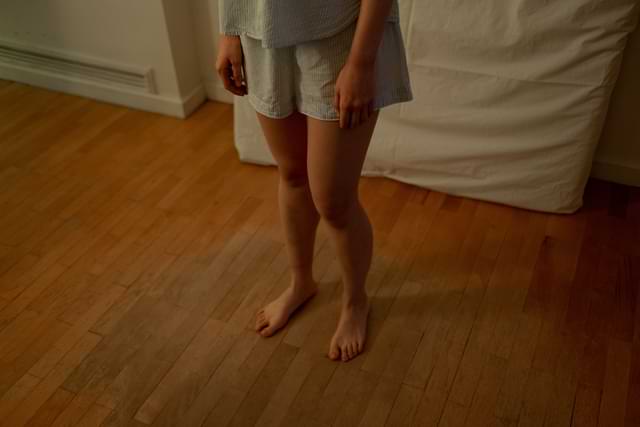Does feeling the need to move your feet or legs at night keep you awake?
It would help if you were diagnosed with Restless Legs Syndrome. This syndrome is related to movement and sensation. In restless legs syndrome, you might experience an unpleasant sensation or feeling in various body parts, especially in the legs, when they lie down. You also have a strong urge to move your body, and moving it makes you feel much better. But the problem is that all this movement might affect your sleep, and getting enough good night’s sleep might become impossible.
Restless legs syndrome usually affects your legs.
As the name suggests, this syndrome usually affects your legs. However, it can also cause certain unpleasant sensations in your torso, phantom limbs, and arms. In addition, this syndrome harms your sleep cycle and prevents you from getting the appropriate amount of sleep. When you do not get enough sleep, you begin to have particular problems during the daytime because you feel so restless and tired. In addition, you may face trouble concentrating or focusing on your work because you feel sleepy. So, if you experience any symptoms of restless legs syndrome, consulting a healthcare provider is undoubtedly a good option.
What are the reasons behind restless legs syndrome?
The causes of restless legs syndrome are not clear yet. However, it has been observed that the problem might be genetic, which means it often runs in families. Sometimes, the cause is known, such as inappropriate intake of iron. If that is the case, iron supplements or a diet rich in iron might help. Sometimes, restless legs syndrome might occur when a woman is pregnant. Furthermore, other issues linked with restless legs syndrome include diabetes, anemia, nerve damage, Parkinson’s disease, rheumatoid arthritis, and kidney failure.
Higher levels of thyroid hormones and estrogen dominance have also been associated with restless legs syndrome.
What are the symptoms of Restless Legs Syndrome?
The most prominent symptom of this syndrome is feeling an urge to move your body, usually your legs. This feeling can be described as a tingling sensation, prickling, itching, throbbing, crawling, or “pins and needles.” Although moving your body parts does make you feel better for a short period. This urge usually happens when you relax or try to sleep at night. Once you are asleep, your arms or legs might start to move or jerk. These movements wake you up at night and are called Periodic Limb Movements. Since your sleep is affected, this condition may lead to overtiredness and fatigue. Periodic limb movement and restless legs syndrome are two different conditions yet are directly related.
How is the diagnosis of restless legs syndrome carried out?
Getting this syndrome diagnosed is pretty tricky. Medical practitioners usually don’t ask you about restless legs or your sleep cycle symptoms and prescribe specific medical tests. It is your responsibility to tell the doctor if you feel restless legs or have not been sleeping well. Once you talk to your doctor about how restless you feel in your legs, the doctor will ask about other symptoms to ensure that the problem behind your condition is none other than restless legs syndrome.
The healthcare provider may order tests of your nerves and blood tests to ensure no nerve damage or any other potential cause behind your situation. He may also prescribe a sleep study known as polysomnography that records the frequency of the movement or jerking of your legs while you sleep.
How is restless legs syndrome treated?
A few changes to the lifestyle might help if the symptoms are mild. These changes may include avoiding alcohol, caffeine, or tobacco, keeping your bedroom cozy, quiet, and comfortable, exercising regularly, massaging your arms and legs, or using ice packs or heat packs. However, if the symptoms are severe, you might need specific medications that aid in controlling the urge to move your legs and help you get proper sleep.
Most people do not take restless legs syndrome seriously and never seek any medical attention in this situation. But since this problem interferes with your rest and sleep, it can become a real issue as it can cause daytime fatigue and drowsiness. This undoubtedly can have a severe negative impact on the quality of life.
Try to understand your body and be aware of every reason that might cause your body to react differently.

